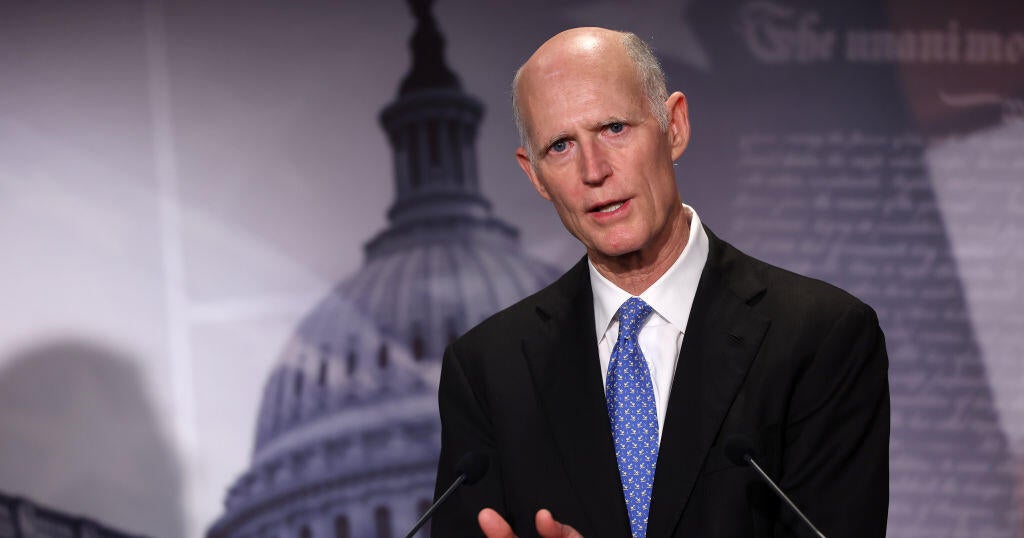House approves GOP tax plan for a second time, heads to Trump's desk
The House on Wednesday approved the GOP tax plan -- for a second time -- with President Trump's desk as its next and final stop.
Lawmakers approved the bill in a 224-201, a day after they approved it a first time. Due to procedural issues that arose in the Senate a day earlier, the House had to vote a second time.
Besides confirmation of Neil Gorsuch as a Supreme Court justice, this marks the first major legislative achievement of the Trump presidency. President Trump has long said he wants to sign the legislation before Christmas.
The Senate passed the final version of the GOP tax bill early Wednesday morning, after hours of floor speeches in which Democrats lambasted the legislation as bad for the middle class, while Republicans insisted the exact opposite was the case. The legislation passed along party lines, 51-48, with Vice President Mike Pence presiding over the vote.
Senate Majority Leader Mitch McConnell, R-Kentucky, said the Senate will continue to prove to the American people the bill is beneficial to them. Multiple polls have suggested the bill is more unpopular than it is popular, and that many Americans believe their taxes will go up, even as Republicans say taxes will go down for most families and individuals.
"My view of this is if we can't sell this to the American people, we ought to go into another line of work," McConnell said in a press conference following the vote.
Sen. John Cornyn, R-Texas, called the vote a "referendum" on whether the American dream can be alive in the future.
"We don't believe you have to settle for anemic growth, flat wages and fewer jobs," Cornyn said.
The bill's passage in the Senate was briefly disrupted and delayed by people chanting, "kill the bill!" from the Senate gallery.
Sen. John McCain, R-Arizona, was not present for the vote, as he battles the side effects of cancer and spends the Christmas holiday with his family.
Speaker of the House Paul Ryan, R-Wisconsin, was pleased.
"After years of work, we are going to enact the most sweeping, pro-growth overhaul of our tax code in a generation. Americans are going to see relief almost immediately in the form of bigger paychecks and lower taxes," Ryan said in a statement early Wednesday. "I commend Leader McConnell and Chairman Hatch for working closely with the House to produce this historic legislation, and I look forward to joining them to send it to the president."
Several provisions in the House-passed overhaul appeared to violate the procedural rules of the Senate, Democrats suggested. One possible violation involved the use of 529 savings accounts for home-schooling. Another possible violation exempted colleges from a new endowment tax if they have fewer than 500 students paying tuition. Another objection appeared technical in nature, as the bill repeals a section by its number, instead of the title of the section. Republicans allowed those provisions to be struck from the bill.
The news of a revote came after much fanfare upon the bill's passage in the House. House members approved the bill in a 227-203 vote.
GOP lawmakers from both chambers struck a deal last week on the tax plan and released the legislative text on Friday. The tax plan also includes a repeal of the Obamacare individual mandate.
- 3 moves to make by the end of 2017 if GOP tax bill becomes law
- Tax reform: How will the new tax bill affect me?
- How 4 different households would fare under the tax bill
Here are the details of the final tax agreement, according to highlights from the conference committee:
- Eliminates penalty under the Affordable Care Act for failing to have health insurance
- Lowers corporate tax rate from 35 percent to 21 percent (higher than the original 20 percent in the House and Senate bills)
- Reduces top effective marginal tax rate for S corporations to a top rate of 29.6 percent, allowing for a 20 percent tax deduction that applies to the first $315,000 of joint income earned by all S-corporations
- Eliminates corporate Alternative Minimum Tax (AMT); increases the exemption amount from the AMT for individuals
- Keeps seven individual tax brackets, although those brackets would change.
- Continues to exempt the value of tuition waivers from taxes (the GOP had considered counting tuition waivers as income, and thus, taxable.)
- Increases the refundable portion of the child tax credit to $1,400, thanks to Sen. Marco Rubio's insistence. The overall child tax credit will increase from $1,000 to $2,000.
- Roughly doubles the standard deduction, from $6,350 to $12,000 for individuals, and from $12,700 to $24,000 for married couples filing jointly
- Preserves the child adoption tax credit
- Allows filers to write off the cost of state and local taxes, but only up to $10,000. Filers must choose from among sales, income and property taxes for the deduction, instead of being able to deduct all local taxes.
- Preserves the mortgage interest deduction for all homeowners with existing mortgages, and for homeowners with new mortgages, the home mortgage interest deduction will be available up to $750,000
- Preserves the charitable deduction as it is
The GOP claims the bill will mean a $2,059 tax cut for a family of four earning the median family income of $73,000.
CBS News' Catherine Reynolds, Rebecca Shabad and Kathryn Watson contributed to this report.





